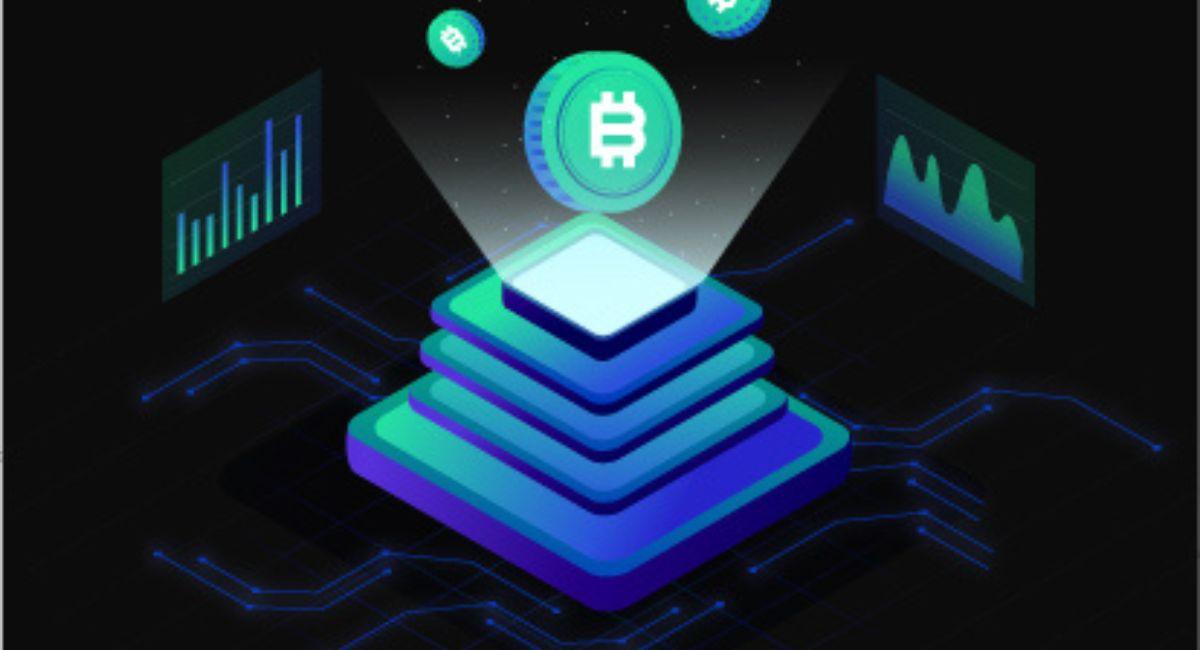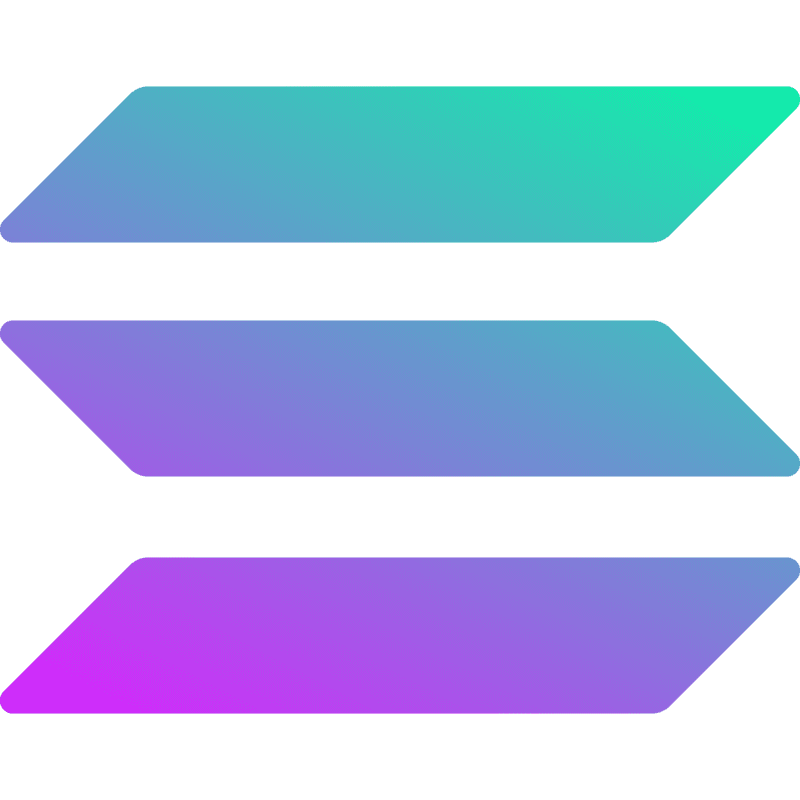January 15, 2024 by Diana Ambolis
1659
Solana Program Library (SPL) is a comprehensive set of libraries and tools designed to facilitate decentralized application (DApp) development on the Solana blockchain. This guide explores the key components of SPL, providing developers and enthusiasts with insights into harnessing its power for creating scalable and efficient applications on the Solana ecosystem. What is SPL? SPL
Solana Program Library (SPL) is a comprehensive set of libraries and tools designed to facilitate decentralized application (DApp) development on the Solana blockchain. This guide explores the key components of SPL, providing developers and enthusiasts with insights into harnessing its power for creating scalable and efficient applications on the Solana ecosystem.
What is SPL?
SPL comprises a collection of on-chain programs and libraries that streamline the development of smart contracts, tokens, and various other decentralized applications on Solana. These libraries are designed to enhance efficiency, security, and interoperability within the Solana ecosystem.
Key Components of SPL

The Solana Program Library (SPL) is a collection of on-chain programs, also known as smart contracts, that developers can use to build decentralized applications (DApps) on the Solana blockchain. The key components of the Solana Program Library include:
- SPL Token: SPL Token is a standard for representing fungible and non-fungible tokens on the Solana blockchain. It defines how tokens can be created, transferred, and managed. This standard is similar to Ethereum’s ERC-20 and ERC-721 standards for fungible and non-fungible tokens, respectively.
- SPL Token Swap: The Solana Program Library Token Swap program facilitates the exchange of tokens on the Solana blockchain. It allows users to swap one type of token for another, providing a decentralized and trustless way to trade assets directly on the blockchain.
- SPL Token Registry: The Solana Program Library Token Registry program is designed to maintain a list of token mints and their associated metadata. It provides a standardized way to discover information about different tokens on the Solana blockchain.
- SPL Associated Token Account: This program is used to create an associated token account, which is a Solana account associated with a specific token mint. It simplifies the management of token ownership and allows users to interact with tokens more easily.
- SPL Memo: The Solana Program Library Memo program enables the attachment of a memo to a transaction. A memo is a short piece of text that can be included with a transaction to provide additional information or context.
- SPL Stake Pool: The Solana Program Library Stake Pool program is used for managing staking pools on the Solana network. Staking pools allow users to delegate their tokens to a pool, which then participates in the network’s proof-of-stake consensus mechanism.
- SPL Token Staking: This program facilitates the staking of SPL tokens. Staking involves locking up tokens to contribute to the security and operation of the network in exchange for rewards.
- SPL Vault: The SPL Vault program is designed for managing decentralized finance (DeFi) vaults on the Solana blockchain. DeFi vaults often involve strategies for optimizing yield on deposited assets.
- SPL Oracles: Oracles are programs that provide external data to smart contracts. The Solana Program Library Oracles program allows developers to integrate external data feeds into their Solana-based applications, enhancing the functionality of decentralized applications.
These components form the foundation of the Solana Program Library, providing developers with a set of tools and standards to create a variety of decentralized applications and services on the Solana blockchain. As the Solana ecosystem evolves, additional components and improvements to existing ones may be introduced.
All about SPL Token Development

SPL (Solana Program Library) Token Development involves creating and deploying tokenized assets on the Solana blockchain. Solana’s SPL Token standard is analogous to Ethereum’s ERC-20 and ERC-721 standards, defining a set of rules and interfaces for the creation and management of fungible and non-fungible tokens. Here is a comprehensive guide to SPL Token Development:
- Understanding SPL Token Standards:
- SPL Token: For fungible tokens, representing assets like native currencies or utility tokens.
- SPL Token Mint: Represents the source of the tokens. Mints can be used to create new tokens.
- Setting Up Development Environment:
- Install the Solana Command Line Interface (CLI) and other necessary tools.
- Familiarize yourself with the Solana documentation and developer resources.
- Creating a Token:
- Use the SPL Token program to create a new token by specifying its name, symbol, and decimal places.
- Mint initial tokens by calling the mint-to instruction.
- Transfers and Transactions:
- Implement logic for transferring tokens between accounts using the transfer instruction.
- Understand the concept of associated token accounts for easier token management.
- Implementing Token Swaps:
- Use the SPL Token Swap program for creating decentralized token exchanges on Solana.
- Enable users to swap one type of token for another directly on the blockchain.
- Token Metadata and Registry:
- Use the SPL Token Registry program for maintaining a list of token mints and their associated metadata.
- Enhance user experience by providing standardized information about different tokens.
- Integration with DeFi:
- Explore SPL Vault development for managing decentralized finance (DeFi) vaults on Solana.
- Implement strategies for optimizing yield on deposited assets within the vault.
- Staking with SPL:
- Use SPL Stake Pool and Solana Program Library Token Staking programs for managing staking pools and allowing users to delegate tokens for network participation.
- Oracle Integration:
- Utilize SPL Oracles to integrate external data feeds into your applications.
- Enhance the functionality of decentralized applications by incorporating real-world data.
- Testing and Deployment:
- Conduct thorough testing of your Solana Program Library token contracts in a local development environment.
- Deploy your SPL token contracts to the Solana blockchain, ensuring proper security measures are in place.
- Community Engagement:
- Engage with the Solana developer community for support, collaboration, and feedback.
- Stay updated on Solana’s ecosystem developments and best practices.
- Documentation and Auditing:
- Provide comprehensive documentation for your Solana Program Library token contracts.
- Consider conducting code audits to ensure the security and reliability of your token contracts.
Remember that Solana Program Library Token Development involves both technical aspects and considerations for user experience, security, and integration with the broader Solana ecosystem. Keep abreast of updates and best practices within the Solana community to ensure the success of your SPL Token projects.
Tools and Resources in SPL (Solana Program Library)

Developing with the Solana Program Library involves using various tools and resources to streamline the development process. Here’s a list of key tools and resources for SPL development:
Tools:
- Solana CLI (Command Line Interface):
- The official command-line tool for interacting with the Solana blockchain. It allows you to deploy contracts, create accounts, and perform various other operations.
- Solana Explorer:
- A web-based tool for exploring and inspecting the Solana blockchain. It provides a visual representation of blocks, transactions, and accounts.
- Solana Wallet:
- A browser extension wallet that enables users to interact with decentralized applications on the Solana blockchain. It’s often used for testing and development.
- Rust Programming Language:
- Solana’s smart contracts are typically written in Rust. Rust is a systems programming language known for its performance and memory safety.
- Visual Studio Code (VSCode) with Solana Extension:
- VSCode is a popular code editor, and there’s a Solana extension that provides features like code highlighting, autocompletion, and debugging for Solana projects.
- Solana Token Registry CLI:
- A command-line tool to manage token registry information. It helps in maintaining metadata associated with token mints on the Solana blockchain.
- Devnet Faucet:
- A tool that allows developers to request tokens for testing on the Solana Devnet (development network). It helps acquire SOL tokens for testing transactions.
Resources:
- Solana Documentation:
- The official documentation is a comprehensive resource covering all aspects of Solana development, including tutorials, API references, and guides.
- Solana Developer Discord:
- A community space where developers can collaborate, ask questions, and get support. It’s a valuable resource for staying updated on the latest developments and best practices.
- Solana GitHub Repositories:
- The official Solana GitHub organization hosts various repositories containing the source code for Solana tools, programs, and libraries. It’s a good place to explore examples and contribute to the ecosystem.
- Solana Program Library (SPL) GitHub:
- The SPL GitHub repository contains the source code for the Solana Program Library. Developers can refer to this repository for information on existing programs and libraries.
- SPL Token Development Guide:
- Solana provides a guide specifically focused on SPL token development. It covers creating, transferring, and managing tokens using the SPL Token standard.
- Solana Beach:
- A web-based tool that allows users to explore the Solana blockchain, inspect blocks, transactions, and accounts. It’s useful for visualizing on-chain data.
- Solana Labs Blog:
- The official blog of Solana Labs provides updates, announcements, and in-depth articles on various aspects of Solana development
- Solana Program Library Token Swap GitHub:
- For developers interested in token swaps, the Solana Program Library Token Swap GitHub repository provides code examples and documentation for creating decentralized exchanges on Solana.
When developing with Solana Program Library, it’s crucial to refer to official documentation and community resources to ensure that you are using the latest tools and following best practices. The Solana community is active and supportive, making it a great environment for developers to learn and collaborate.
Community and Support for SPL (Solana Program Library)
The Solana Program Library has a vibrant and active community that provides support, resources, and collaboration opportunities for developers working with Solana. Here are some key channels and platforms where you can engage with the SPL community:
- Solana Developer Discord:
- The Solana Developer Discord server is a central hub for developers working on Solana projects. You can join various channels dedicated to different topics, ask questions, share your progress, and connect with other developers. The community is responsive and often includes contributions from experienced Solana developers.
- Solana Forums:
- The Solana forums provide a space for community discussions, announcements, and technical questions. You can explore different categories related to development, ecosystem projects, and general discussions. It’s a place to stay updated on the latest news and events within the Solana ecosystem.
- GitHub Repositories:
- The official Solana GitHub repositories, including the Solana Labs GitHub organization and the Solana Program Library GitHub repository, are active places for collaboration. Developers can contribute to existing projects, report issues, and explore the source code of Solana tools and libraries.
- Twitter:
- Following the official Solana Twitter account and key personalities within the Solana ecosystem is a great way to stay informed about updates, announcements, and community events. Additionally, using relevant hashtags such as #Solana and #SPL can help you discover and connect with other developers.
- Solana Labs Blog:
- The Solana Labs Blog provides in-depth articles, tutorials, and insights into various aspects of Solana development. It’s a valuable resource for staying updated on best practices, new features, and case studies within the Solana ecosystem.
- Community-led Initiatives:
- Keep an eye out for community-led initiatives, meetups, hackathons, and educational events related to Solana and SPL development. These initiatives often provide opportunities to network with other developers, learn new skills, and collaborate on projects.
- Educational Resources:
- Explore educational resources created by the community, including tutorials, video content, and documentation. Platforms like YouTube and Medium may host valuable content created by developers sharing their experiences and knowledge with the community.
- Developer Grants and Programs:
- Solana Labs and other organizations within the ecosystem may offer developer grants and programs to support innovative projects and ideas. Stay informed about these opportunities, as they can provide financial support and resources for your SPL development efforts.
Engaging with the Solana Program Library community is not only a way to seek assistance but also an opportunity to contribute to the growth of the Solana ecosystem. Whether you are a beginner looking for guidance or an experienced developer sharing your insights, the collaborative nature of the community makes it a valuable resource for SPL development.
Conclusion
The Solana Program Library serves as a foundational toolkit for developers venturing into the world of decentralized applications on the Solana blockchain. Understanding its key components, leveraging token development functionalities, exploring smart contracts, and utilizing tools and resources empower developers to create scalable and efficient applications within the Solana ecosystem. With an active community and ongoing development, Solana Program Library continues to play a vital role in shaping the future of decentralized innovation on Solana.

































































